Filter by
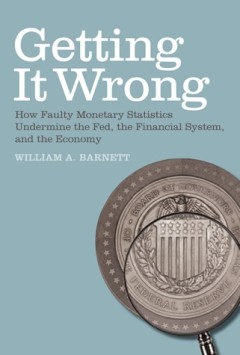
Getting it Wrong: How Faulty Monetary Statistics Undermine the Fed, the Finan…
Blame for the recent financial crisis and subsequent recession has commonly been assigned to everyone from Wall Street firms to individual homeowners. It has been widely argued that the crisis and recession were caused by "greed" and the failure of mainstream economics. In this book, leading economist William Barnett argues instead that there was too little use of the relevant economics, especi…
- Edition
- -
- ISBN/ISSN
- 9780262301343
- Collation
- 1 online resource (xxxi, 322 pages) :illustrations
- Series Title
- -
- Call Number
- -
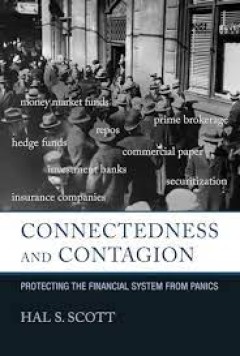
Connectedness and contagion protecting the financial system from panics
"The Dodd-Frank Act of 2010 was intended to reform financial policies in order to prevent another massive crisis such as the financial meltdown of 2008. Dodd-Frank is largely premised on the diagnosis that connectedness was the major problem in that crisis -- that is, that financial institutions were overexposed to one another, resulting in a possible chain reaction of failures. In this book, H…
- Edition
- -
- ISBN/ISSN
- 9780262332156
- Collation
- 1 online resource (xxi, 416 pages)
- Series Title
- -
- Call Number
- -
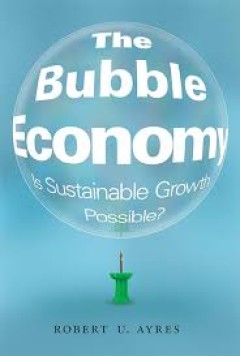
The bubble economy :is sustainable growth possible?
The global economy has become increasingly, perhaps chronically, unstable. Since 2008, we have heard about the housing bubble, subprime mortgages, banks "too big to fail," financial regulation (or the lack of it), and the European debt crisis. Wall Street has discovered that it is more profitable to make money from other people's money than by investing in the real economy, which has limited ac…
- Edition
- -
- ISBN/ISSN
- 9780262323932
- Collation
- 1 online resource
- Series Title
- -
- Call Number
- -

Economics in the Age of COVID-19
A guide to the pandemic economy: essential reading about the long-term implications of our current crisis. The COVID-19 pandemic has unleashed a firehose of information (much of it wrong) and an avalanche of opinions (many of them ill-founded). Most of us are so distracted by the everyday awfulness that we don't see the broader issues in play. In this book, economist Joshua Gans steps back from…
- Edition
- -
- ISBN/ISSN
- 9780262362801
- Collation
- 1 online resource.
- Series Title
- -
- Call Number
- -
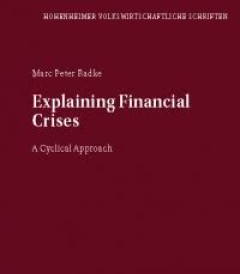
Explaining Financial Crises A Cyclical Approach
This book develops a new theoretical approach to the explanation of systemic financial crises in industrial and emerging market countries. In contrast to standard models, the present cyclical approach is consistent with the following three stylized facts. Firstly, systemic financial crises are a recurrent phenomenon generally accompanied by excessive boom-bust cycles. Secondly, the frequency of…
- Edition
- -
- ISBN/ISSN
- 9783631754375
- Collation
- -
- Series Title
- -
- Call Number
- -
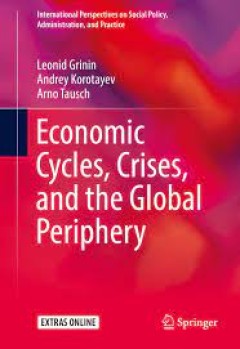
Economic Cycles, Crises, and the Global Periphery
This thought-provoking monograph analyzes long- medium- and short-term global cycles of prosperity, recession, and depression, plotting them against centuries of important world events. Major research on economic and political cycles is integrated to clarify evolving relationships between the global center and its periphery as well as current worldwide economic upheavals and potential future de…
- Edition
- 1
- ISBN/ISSN
- 978-3-319-41260-3
- Collation
- -
- Series Title
- -
- Call Number
- XVIII, 265
 Computer Science, Information & General Works
Computer Science, Information & General Works  Philosophy & Psychology
Philosophy & Psychology  Religion
Religion  Social Sciences
Social Sciences  Language
Language  Pure Science
Pure Science  Applied Sciences
Applied Sciences  Art & Recreation
Art & Recreation  Literature
Literature  History & Geography
History & Geography